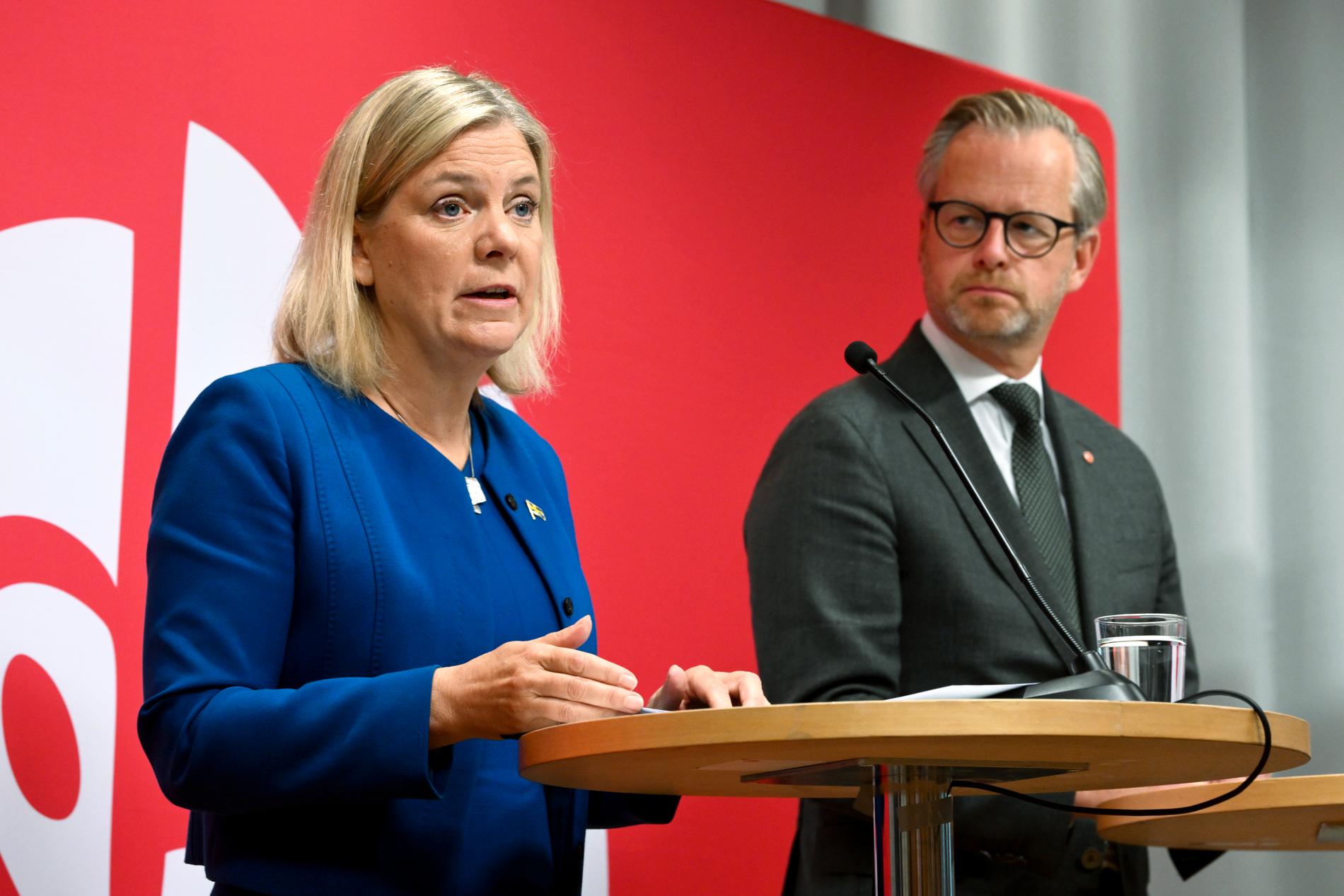400 new billionaires – the gaps continue to widen
Andreas
Cervenka
Published: Less than 2 hours ago
Updated: Less than 50 min ago
This is a commenting text. Analysis and positions are the writer's.

The gap between rich and poor did not become a big issue before the
election - even though Sweden really stands out in this area. Photo:
Jonas Ekströmer/TT
COLUMNISTS
New figures show that Sweden gained over 400 new billionaires in 2021
and that the wealth gap increased dramatically.
We have now passed Russia and are by a margin the most unequal country
in the Western world.
That this is not discussed in the debate after the election is
incomprehensible.
"I think the gaps have widened too much in Sweden," said Finance
Minister Mikael Damberg in an interview just before the election,
blaming, among other things, bourgeois tax policy.
However, he did not have any sharp proposals for changes. The moderates'
shadow finance minister Elisabeth Svantesson did not even want to
discuss the topic.
The gap between rich and poor did not become a big issue before the
election - even though Sweden really stands out in this area. This
picture is confirmed by new figures from the major bank Credit Suisse.
The bank states that 2021 was a record year for the world's rich thanks
to sharp rises in the world's stock markets. Sweden is one of the
winning countries – the average wealth per adult rose by almost 14
percent to 381,970 dollars, 4.2 million kroner at today's rate. That
makes the Swedes the ninth richest people in the world, according to
Credit Suisse.
But the average hides that wealth is very unevenly distributed.
The median, i.e. those who are right in the middle of the ladder, had
assets of only 95,000 dollars or just over a million, which places
Sweden as the 17th country.
In short – the rich withdrew.

2021 was a record year for the world's rich thanks to strong gains in
the world's stock markets. Photo: Getty Images/iStockphoto
Swedes
with a fortune of between 100 and 500 million dollars, i.e.
1.1-5.5 billion kroner, were a whopping 406 more in 2021 and amounted to
1,019 according to Credit Suisse estimates.
The group with $500 million or more grew from 40 to 76.
According to Credit Suisse, the richest one percent's share of Swedes'
total wealth rose from 34.9 percent to 37.6 percent. Thus, Sweden edges
the USA by a margin, where the top one percent owns 35 percent. The
share of the richest ten percent has grown from 74 to 75.6 percent in
Sweden, where we are soon catching up with the United States with 75.9
percent.
There are different ways to estimate wealth and different measurements
give different results. Credit Suisse bases its figures on available
statistics (which are often quite meager when it comes to wealth) but
also partly on lists of billionaires produced by magazines such as
American Forbes.
An objection that is sometimes raised is that the distribution of wealth
is more uneven in pronounced welfare states because generous pension
systems and other things reduce the need to save. It also mentions
Credit Suisse, but at the same time notes that Sweden, compared to our
Nordic neighbors, plays in a league of its own.
In Denmark, the richest percent own 23.8 percent, in Finland 29.3
percent and in Norway 29.7 percent.
One way to show wealth distribution is the so-called Gini coefficient.
It can also be used when it comes to income, where Sweden is still quite
high in the equality league. But in the area of wealth, the picture
is completely different. According to Credit Suisse, Sweden's gini
coefficient was 88.1 at the end of 2021, an increase from 87.2 in 2020
(a gini value of 1 means that everyone owns the same amount, 100 that
one person owns everything).
Thus, Sweden passed Russia with 88 percent. The US has a value of 85,
Denmark 73.9 and the UK 70.6.
Sweden is the world champion in the field of wealth gaps, at least when
it comes to developed countries. According to Credit Suisse, Sweden is
12th in the world, beaten only by nations such as South Africa, Zambia,
Brazil and Lesotho.
There are, of course, big differences between these countries and Sweden
- but just the fact that we can end up so high in this type of ranking
should trigger a political discussion. If you could think. Especially as
the group of poor also grew. Instead there is silence.
It is especially strange considering the political currents that are
usually connected with growing economic differences within a country.
There are plenty of studies that have seen a connection between divides
and populism. Or as the German professor Michael Zürn has put it:
"Cultural division in society and increased inequality are the breeding
ground for authoritarian populists".
2022 has meant an economic paradigm shift. It will cause the gaps to increase. Of
course, many billionaires have seen their fortunes decline, but the
crisis hits hardest the already poor and the middle class who borrowed
heavily to keep up with the upswing.
If Swedish politics has been perceived as messy lately, it can be a light breeze to what lies ahead.

Inga kommentarer:
Skicka en kommentar